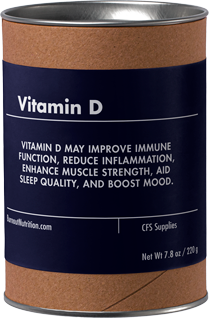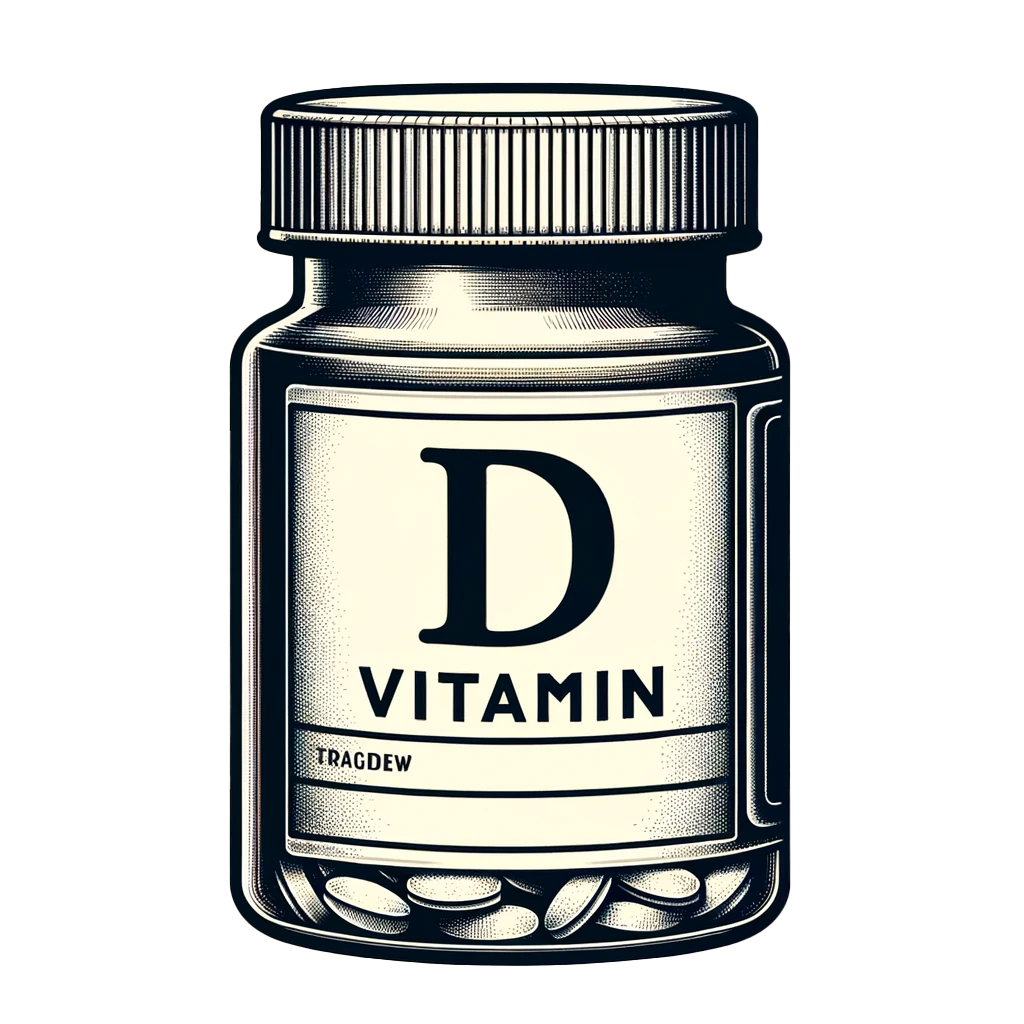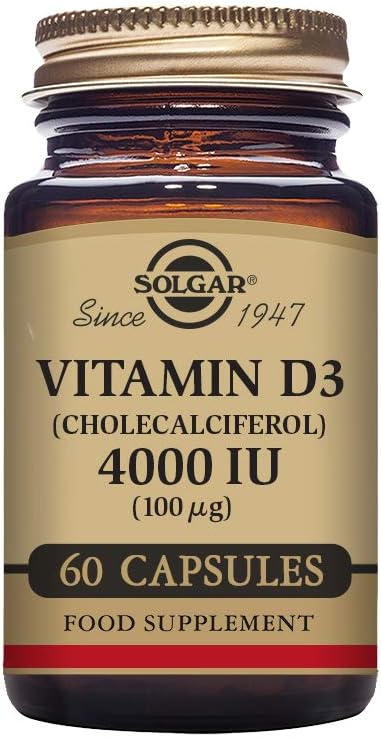Vitamin D can help people with Chronic Fatigue Syndrome (CFS) in several ways, although it’s important to note that the effectiveness and mechanisms are still under research and not definitively established. Here’s how professionals think vitamin D might be beneficial:
- Immune System Modulation: Vitamin D plays a crucial role in the immune system. It helps modulate the body’s immune responses. Since CFS is thought to be related to immune system dysfunction in some cases, adequate vitamin D levels might help in regulating the immune response.
- Reduction of Inflammation: Vitamin D has anti-inflammatory properties. Chronic inflammation is often associated with CFS, and by reducing inflammation, vitamin D could potentially alleviate some symptoms of CFS.
- Muscle Function: Vitamin D is important for muscle health and function. People with CFS often experience muscle weakness and pain. Adequate vitamin D levels might help improve muscle strength and reduce musculoskeletal discomfort.
- Mental Health and Mood Regulation: There is a known link between low levels of vitamin D and conditions like depression and anxiety. Since mood disorders are common in people with CFS, improving vitamin D status could potentially have a positive effect on mental health and quality of life.
- Sleep Regulation: Some studies suggest that vitamin D plays a role in regulating sleep patterns. Since sleep disturbances are a common symptom of CFS, proper vitamin D levels might help in improving sleep quality.
- Energy Metabolism: Vitamin D is thought to have a role in mitochondrial function. Mitochondria are the energy powerhouses of the cell, and impaired mitochondrial function has been proposed as a factor in CFS. By supporting mitochondrial function, vitamin D might help in improving energy levels.
It’s important for individuals with CFS to have their vitamin D levels checked and to discuss with healthcare providers the best approach to managing their condition, which may include vitamin D supplementation if levels are low. However, vitamin D should not be seen as a cure for CFS but rather as a part of a broader management strategy.

- Good for Immune system
- Good for inflamation
- Widely available
- Look for Vitamin D3
- Hypoallergenic options
- Vegan options
Vitamin D: Purchase | Dosage | Benefits | Science
Buy Vitamin D online:
Important Note: This information serves as a guideline only and should NOT replace specialist advice. Always consult your doctor, pharmacist or a health care professional like a nutritionist before starting any new treatment.
Vitamin D Dosage for Chronic Fatigue
- NIH/NHS Recommends:
- Adults aged 19-70 years: 600 IU (15 mcg) per day
- Adults over 70 years: 800 IU (20 mcg) per day
- Pregnancy and lactation: 600 IU (15 mcg) per day
The recommended dosage of vitamin D for individuals with Chronic Fatigue Syndrome (CFS) isn’t specifically established and can vary based on individual needs, existing vitamin D levels, and overall health. It’s important to note that vitamin D supplementation should be personalized and done under medical supervision, especially in the context of a condition like CFS.
For general health, the Recommended Dietary Allowances (RDAs) for vitamin D according to the National Institutes of Health (NIH) are 600-800 IU’s per day for an adult.
These RDAs are for maintaining overall health in the general population and might not be sufficient for those with certain conditions, including CFS, especially if they have a diagnosed deficiency. In cases of deficiency, healthcare providers might recommend higher doses to replenish vitamin D levels, often ranging from 1,000 to 4,000 IU per day, or higher in some cases. However, dosages above 4,000 IU per day should be taken with caution and under medical supervision, as excessive intake can lead to toxicity and adverse health effects.
For Burnout patients, it is crucial to get vitamin D levels tested to determine the appropriate dosage.
Natural sources of Vitamin D
Good natural sources of vitamin D primarily include sunlight exposure and certain foods. Vitamin D is unique because it can be synthesized by the body when the skin is exposed to sunlight, specifically UVB rays. However, dietary sources are also important, especially in regions with limited sunlight or for individuals who have limited sun exposure. Here are some of the best natural sources:
- Sunlight: The most natural way to get vitamin D is by exposing your bare skin to sunlight. The amount of vitamin D you get from exposing your skin to the sun depends on the time of day, where you live, the color of your skin, and the amount of skin you expose. However, it’s important to balance sun exposure with skin cancer risk and to avoid overexposure or sunburn.
- Fatty Fish: Fish, especially fatty fish like salmon, mackerel, and sardines, are among the best dietary sources of vitamin D. A serving of cooked salmon can provide almost all the recommended daily intake.
- Cod Liver Oil: This is a traditional source of vitamin D, although it’s more commonly taken as a supplement. It’s also rich in omega-3 fatty acids.
- Egg Yolks: Eggs are a convenient way to get vitamin D. They’re easy to incorporate into your diet. However, vitamin D levels in egg yolks depend on sun exposure and the vitamin D content of chicken feed.
- Mushrooms: Certain varieties of mushrooms can provide vitamin D, particularly if they are exposed to ultraviolet light. However, the type of vitamin D produced by mushrooms (D2) is different from that produced by animals and humans (D3).
- Fortified Foods: In many countries, foods are fortified with vitamin D to help prevent deficiencies. This includes products like cow’s milk, plant-based milk alternatives, orange juice, and certain cereals.

Dietary sources alone may not be sufficient to maintain optimal vitamin D levels for everyone, and supplementation might be necessary, especially in regions with limited sunlight.

Vitamin D Benefits for Chronic Fatigue
- Reduced inflammation
- Immune System Regulation
- Improvement in Sleep Quality
- Mental Health Benefits
- Immune System Regulation: Vitamin D is known to play a crucial role in the immune system, helping to modulate both innate and adaptive immune responses. CFS has been associated with immune system dysfunction, and vitamin D might aid in normalizing these immune responses, potentially reducing some of the symptoms associated with CFS.
- Reduction of Inflammation: CFS is often accompanied by chronic inflammation. Vitamin D has anti-inflammatory properties, which could help in reducing systemic inflammation, thereby potentially alleviating symptoms of fatigue and pain that are characteristic of CFS.
- Enhancement of Muscle Strength and Function: Weakness and pain in muscles are common in individuals with CFS. Vitamin D is essential for muscle health, promoting muscle growth and function. Adequate levels of vitamin D might improve muscle strength and reduce musculoskeletal pain, which is beneficial in managing CFS symptoms.
- Improvement in Sleep Quality: Disturbed sleep patterns and non-restorative sleep are common issues in CFS. Some studies suggest that vitamin D plays a role in sleep regulation. By potentially improving sleep quality, vitamin D may help alleviate one of the more debilitating aspects of CFS.
- Mood and Mental Health Benefits: Depression and anxiety are common among individuals with CFS. Vitamin D is believed to have a role in brain health and mood regulation. By potentially improving mood and cognitive function, vitamin D supplementation could help in managing the psychological symptoms associated with CFS.
Vitamin D Science for Burnout recovery
Serum 25-hydroxy vitamin D levels in chronic fatigue syndrome: a retrospective survey | ⏍
This paper supported the notion that patients with moderate to severe CFS should maintain adequate sun exposure and consume foods high in vitamin D, with supplementation considered if levels remain low.
Vitamin D status in chronic fatigue syndrome/myalgic encephalomyelitis: a cohort study from the North-West of England | ⏍
This study involved a detailed analysis of vitamin D metabolites in CFS/ME patients compared to healthy controls. This study highlighted the importance of vitamin D in the context of CFS/ME, underscoring the need for careful monitoring of vitamin D levels in these patients.
Investigating causality in the association between vitamin D status and self-reported tiredness | ⏍
This study used a Mendelian randomization approach to assess the causal influence of genetically lowered vitamin D status on fatigue in the general population. This study adds an interesting genetic perspective to the understanding of how vitamin D status might influence fatigue, a key symptom of CFS
Our favourite Vitamin D brand
We recommend Pure Encapsulations or Solgar brand because it’s:
- High Quality
- Reliably available
- Available in a variety of strengths/doses
- Easy to take
- Has some sustainability credentials

Also available as:
- Oral Spray (often Vitamin D3 with Vitamin K2)





